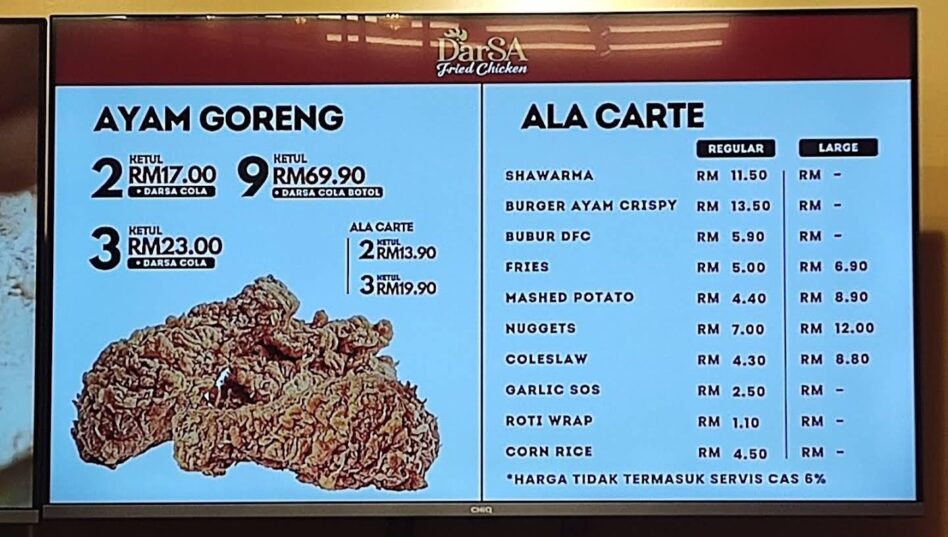By Xavier Kong
AMONG the new Covid-19 cases confirmed as of 12pm, April 21, 18 cases are imported cases from Malaysians returning from overseas, while the remainder are from local infections. This was shared by Health director-general Datuk Dr Noor Hisham Abdullah during his daily update on the Covid-19 outbreak in Malaysia.
According to the report, 57 new cases were confirmed, of which 18 cases were imported cases, for a total of 5,482 cases in Malaysia. Of these, 2,041 remain active and are being treated, with 43 being treated in intensive care units, while 27 of those require ventilator support. There were 54 new recoveries reported today, bringing the total to 3,349 recoveries. Three new deaths were reported, bringing the death toll to 92.
Dr Noor Hisham noted that the drop in daily confirmed cases is encouraging, and that imported cases from returning Malaysians are to be expected, considering over 180 nations around the world have been affected by the global pandemic.
“As such, it can be seen that the move to make it compulsory for all returning Malaysians to be placed at quarantine stations was necessary,” he said, adding that, since April 3, 12,160 returning Malaysians had been quarantined. From that number, 7,910 have been tested, with 95 cases detected.
Dr Noor Hisham also confirmed that, in an effort to study the spread of Covid-19 among a community, the Ministry of Health had already been testing cases of Influenza-like Illnesses (ILI) and Severe Acute Respiratory Infection (SARI) in ministry hospitals and clinics.This acts as surveillance of the virus since Feb 2.
Samples were also tested from all pneumonia cases, with 56 confirmed with Covid-19, from 2,669 samples taken.
It was again reiterated that the war against Covid-19 is not yet over, and Dr Noor Hisham called for Malaysians to work together to further bring down the virus. He noted that Phases 1 and 2 of the Movement Control Order (MCO) have been shown to have an effect, as seen by the falling number of confirmed cases recently.
Imported cases are also kept in hand through border control efforts and the move to quarantine returning Malaysians. The MCO has also prevented the further spread of Covid-19, which has led to there being fewer than 100 cases daily.
He clarified that the true number of cases that are infections from within the community is 39 cases.
“If we can maintain this momentum, this group effort, we can reduce the cases further. We could even reach our goal of single-digit new case detections per day by next week, which is the target of the Ministry of Health,” said Dr Noor Hisham.
He noted that, if Malaysians continued to stay at home, and with the cooperation between the Ministry of Health and other ministries through activities such as Enhanced MCOs, active case detection and the quarantine of identified cases, this can be done.
On the topic of allowing students to return home after the MCO is lifted, Dr Noor Hisham shared that there have been no clusters identified among university students so far, and with sufficient steps, such as screening students before they travel, it would be possible to allow them to go home, though “home rush” has to be avoided. However, a plan has to be enacted to allow this.
He also stated that, with regard to asymptomatic cases, it comes down to whether or not these have had close contact with patients under investigation or confirmed cases. Close contact with a confirmed case has an infection chance of about 30%. Thus, there is a need for screening to catch symptomatic cases, which could be close contacts with asymptomatic cases.
With regard to asymptomatic cases within the community, he admitted that there is no way to know, unless a study is conducted where an entire community is tested for antibodies. He noted that the more relevant question here is whether or not asymptomatic cases can infect others, which is yet to be proven. However, this has conflicting reports, but it is confirmed that symptomatic patients can infect others, which would be a higher infection risk.
Six criteria before MCO can be lifted
Dr Noor Hisham also stressed once again that it is not a confirmed matter whether or not the MCO will end on April 28. The data is being monitored daily, with no decision made yet. He also shared that there are six criteria to be met before the MCO can be lifted.
The first is about border control, where if this is lifted, the virus can very well be brought in by those coming into Malaysia. The second is movement control, where he shared that the chance of infection while staying at home is lower. However, gatherings would be a transmission vector for the number of cases to spike again.
The third is the healthcare system, in terms of whether or not laboratories can detect the virus quickly enough. At the moment, it takes 24 to 48 hours for results from the labs, while the target is to get the results in less than 24 hours. There is also the issue of whether or not treatment centres are able to handle the number of cases.
“We need to see if our healthcare system is ready. Do we have enough wards? Are the ICUs ready? If our system is ready, it is an indication that we can lift the MCO,” he shared.
The fourth is the nation’s ability to protect those at high risk, such as the elderly, the immuno-compromised, as well as those with comorbidities. The fifth is whether or not Malaysians are ready to adapt to a new normal, which includes social distancing and avoiding gatherings.
The sixth is the ability of the Ministry of Health in being able to identify and aid a community in conducting preventive measures. These form the backbone for exiting the MCO, and has to be adopted by every ministry and agency to allow for “a soft landing for an exit strategy,” which is still in the works in terms of implementation.
With regard to the reinfection cases in Sabah, these cases are actually “virus-shedding” which is residue of the virus in the patient’s body, but will turn up as a weak positive on the tests. However, these are not infectious. He also clarified that there is no data that shows antibodies will protect a patient from being reinfected.
On the topic of foreign workers, he noted that the focus is targeted testing at locations and groups of high risk, such as the tabligh gathering. He said that if there was a death or cluster in an area that involves a high risk group, such as foreign workers, action will be taken.
He pointed to the example of Pasar Borong Kuala Lumpur, where 2,064 tests were performed, where there were 28 positive cases detected. This led to the area being declared under an Enhanced MCO, to ensure that the at-risk groups in the area can be screened.
In terms of international cooperation in combating Covid-19, Dr Noor Hisham shared that there are regular meetings with the World Health Organisation (WHO), where guidelines and best practices are shared between the member nations under WHO. – April 21, 2020
| FocusM | |
| As of 12pm, April 21 | |
| Total Infections | 5482 |
| Being Treated In ICU | 43 |
| On Ventilator | 27 |
| Total Recoveries | 3295 |
| Total Deaths | 6392/td> |
| New Cases Today | 57 |
| New Recoveries Today | 54 |
| New Deaths Today | 3 |
|
|
|










